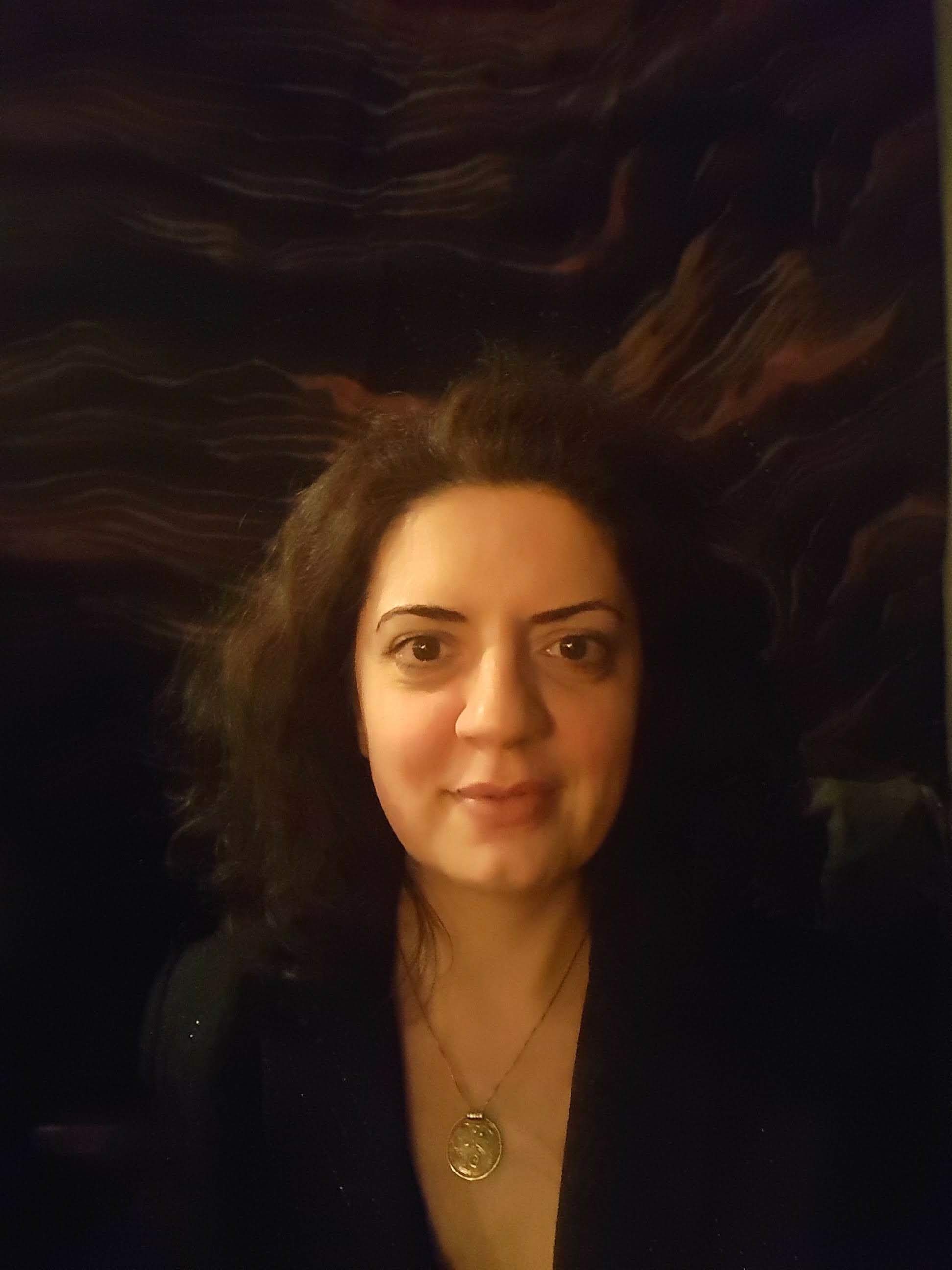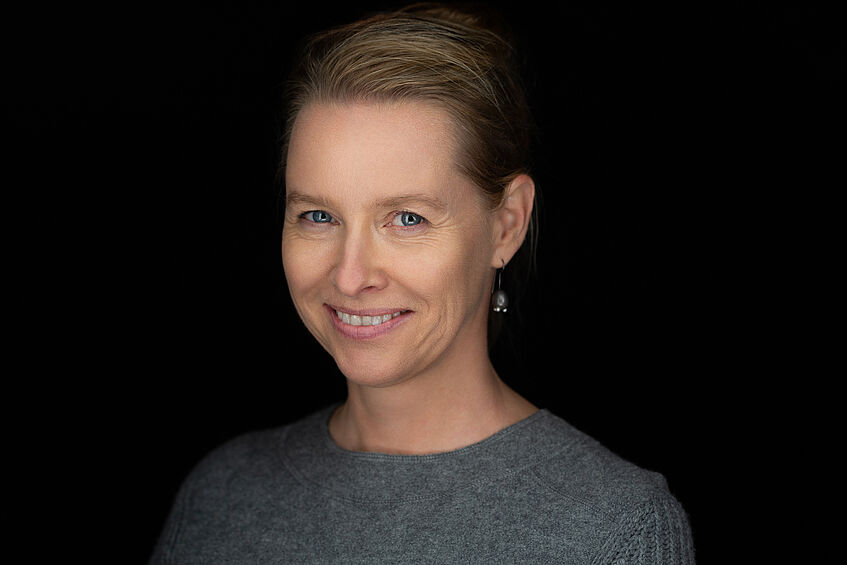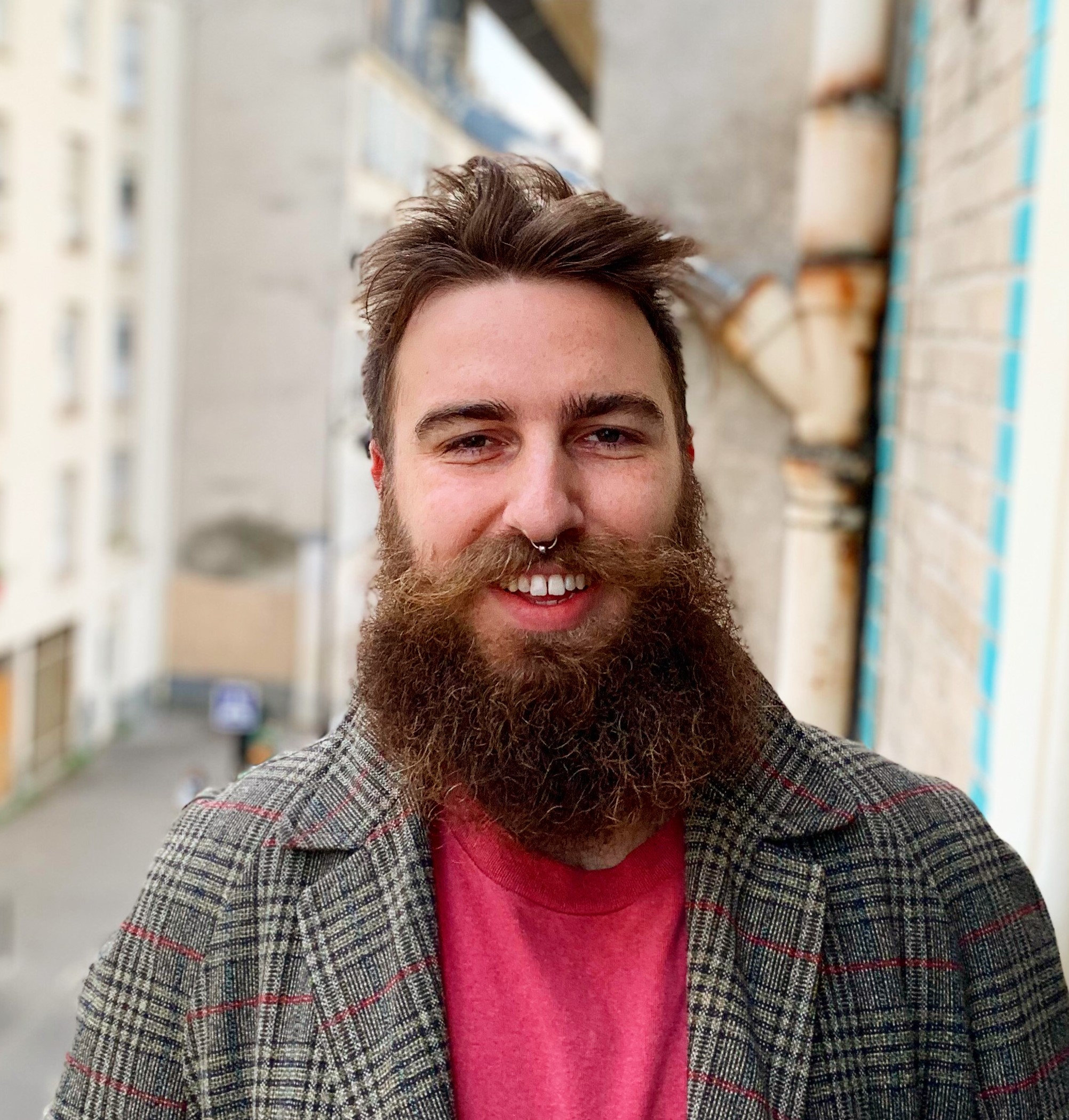Online Lecture 5 "COVID-19 beyond Borders"
Sofia Varino, Eva Horn, and Benjamin Dalton
Tuesday, 29 June 2021, 4:30 pm
Sofia Varino (University of Potsdam)
"A Viral Ecology: Tracing Planetary Temporalities of Care Across a Pandemic Anthropocene"

Sofia Varino
Abstract
What does it mean to live with others
in entangled worlds of contingency and uncertainty?
Dooren, Kurksey, Münster, 2016
What are the historical links between the novel coronavirus pandemic and the global climate crisis? From the early days of the pandemic, theories about the nonhuman origin of the virus and cross-species transmission were prevalent, bringing to the fore concerns about deforestation and loss of habitat, as well as environmental pollution and access to healthcare. In this paper, I seek to address these concerns by examining them historically using a transdisciplinary cultural studies methodology that challenges strict divisions between the humanities and the social and natural sciences, seeking to generate connective tissue among disparate disciplinary locations. Moving beyond the clinical and/or biomedical implications of the coronavirus pandemic, I examine its convoluted ecological dimensions in environmental and racial justice contexts.
As the editors of the Environmental Humanities special issue dedicated to "Multispecies Studies" remind us, "Life cannot arise and be sustained in isolation. But relationships also have histories. Beyond a static ecological exchange, like the energy circuits mapped by early ecologists, organisms are situated within deep, entangled histories" (Dooren, Kiksey, Münster, 2016: 2). It is these deep, entangled histories that I seek to examine as a set of hybrid methodologies for engaging with historical mo(ve)ments in a way that is attuned to multispecies epistemologies, politics, and ethics. My methodological framework is informed by the transdisciplinary environmentalisms of Rachel Carson, Félix Guattari, James Lovelock, Arne Naess and Donna Haraway, taking from the latter a desire to "stay with the trouble" (2016), finding creative ways to intervene in our current ecological disorder(ing) rather than hoping for neat solutions.
My paper thus participates in the necessarily transdisciplinary fields of medical and environmental humanities, science and technology studies, history of science and medicine, and the emerging field of multispecies studies, which poses the unsettling question: "What does it mean to live with others in entangled worlds of contingency and uncertainty?" (Dooren, Kurksey, Münster, 2016). This multispecies living-with – this fast-paced circulation across globally networked economic, clinical, and ecological systems – is what I keep returning to throughout this paper. Tracing genealogies of the coronavirus pandemic where the clinical and the ecological have converged, my paper considers how such geneologies demand the decentering of a normative "human" species position while proposing a reorientation towards other life forms and life worlds.
Bio
Sofia Varino is a postdoctoral fellow with the Minor Cosmopolitanisms research training group at the University of Potsdam's Department of English & American Studies. She received a Ph.D. in Cultural Studies from SUNY Stony Brook and has published in Somatechnics, European Journal of Women's Studies, Women's Studies Quarterly (WSQ) and Feral Feminisms, among others. Her research and teaching interests encompass medical & environmental humanities; history of science & medicine; visual culture; body theory; and queer & feminist studies. Her current book-length project examines the coronavirus pandemic as a network of biomedical and ecological phenomena, delineating its multiple environmental and racial justice genealogies with a focus on comparative Anglophone contexts. In conjunction with her academic research and teaching, she works with performance, text and multimedia across the public and digital humanities.
Eva Horn (University of Vienna)
"Tipping Points: Covid-19 and the Anthropocene"

Eva Horn
Abstract
What is the relationship between COVID-19, as an incisive and quick-paced event, and the Anthropocene as a "catastrophe without event"? The relation, I argue, is not to be understood in terms of causality, but in terms of epistemic similarity. Both are complex events that deal with long, seemingly stable latency periods and rapid escalations in the form of tipping point. The article analyzes the temporal structure of tipping points as a type of event structure typical for the Anthropocene, and concludes with a few remarks on what can be learned from COVID-19 for precautionary policy in the Anthropocene.
Bio
Eva Horn is Professor of Modern German Literature at the Department of German at the University of Vienna. Her areas of research include literature and political theory, disaster imagination in modern literature and film, cultural conceptions of climate, and the Anthropocene. She is the author of The Secret War. Treason, Espionage, and Modern Fiction (Northwestern University Press, 2013), The Future as Catastrophe (Columbia University Press, 2018), and recently, together with Hannes Bergthaller: The Anthropocene - Key Issues for the Humanities (Routledge, 2019).
Benjamin Dalton (Paris Nanterre University / New Sorbonne University Paris)
"Hospitals Beyond Borders: Opening Up Clinical Architectures in Maylis de Kerangal's _Réparer les vivants_ (2013), Katell Quillévéré's _Réparer les vivants_ (2016), and Contemporary French Philosophies of Medicine"

Benjamin Dalton
Abstract
The COVID-19 pandemic has highlighted the ways in which borders are manifest and reinforced in the architectural design of healthcare, from hospitals and other clinical centres, to people's own homes. During the pandemic, hospitals became spaces of intense enclosure, aiming both to shut out people that might bring the virus into the hospital, and also enclose people with the virus within the hospital, preventing them from going back out into the world until cured. Meanwhile, governments instructed populations all over the world to stay at home, transforming people's private residences into sites of enclosure and physical borders to alleviate the strain on public healthcare by slowing the spread of the virus.
In contrast to this, my paper examines an opposite tendency in the thinking of hospital architectures in contemporary French cultural production and philosophy leading up to the pandemic: the conception of hospitals and clinical architectures without borders, both conceptual and architectural. I will thus explore healthcare structures and architectures which privilege exteriority and exposure rather than enclosure. To do this, I will examine Maylis de Kerangal's novel Réparer les vivants (2013) and Katelle Quillévéré's film adaptation of the novel, also called Réparer les vivants (2016). Both the novel and the film follow the body of a young man who has been rendered braindead in a road accident. The narrative traces the young man's body as arrives at and moves through the hospital, following also the man's family's eventual decision to donate his organs; we then follow the donated heart on its route to a new owner. I argue that both texts, in different ways specific to their aesthetic forms, articulate a healthcare of architectural openness. The novel flits between interior and external spaces, both of the hospital and of biological bodie; the film's travelling camera, meanwhile, moves fluidly around the hospital, which is presented as a large, open structure composed of glass and filled with plants and exposed spaces. This open and fluid approach to hospital space, I suggest, resonates with conceptions of the body in contemporary French philosophies of medicine, more specifically Catherine Malabou's notion of 'plasticity' and of the 'plastic' body that is in constant mutation and transformation, and maintains an open, exposed relation the its surrounding environment.
How do these artistic and philosophical elaborations of radically open and borderless healthcare structures intersect with the recent conceptions of borders and enclosures catalysed by the COVID-19 pandemic? I ask whether and how it is possible to conceptualise forms of borderless and open healthcare in the age of lockdown.
Bio
Benjamin Dalton is a researcher in contemporary French thought and culture. He recently received his PhD in French from King's College London with his thesis entitled: "Plasticity in Contemporary French Thought, Literature and Film: Witnessing Transformations with Catherine Malabou". He has recently published an article on plasticity in the writing of Marie Darrieussecq entitled "Forms of Freedoms: Marie Darrieussecq, Catherine Malabou, and the Plasticity of Science" in Dalhousie French Studies (vol. 115, 2020, pp. 55-73), a book chapter on queerness and plasticity entitled "Cruising the Queer Forest with Alain Guiraudie: Woods, Plastics, Plasticities" in Beasts of the Forests: Denizens of the Dark Woods, eds. Jon Hackett and Seán Harrington (East Barnet: John Libbey, 2019, pp. 65-91), and an interview with Catherine Malabou in Paragraph (vol. 42, no. 2, 2019, pp. 238-54). He also led the collaborative project "Narrating Plasticity: Stories of Transformations between the Plastic Arts and Neurosciences", which was funded by the Culture team at King's, and brought together researchers in clinical neuroscience with the ceramicist Amanda Doidge. He currently teaches English language and literature at Paris Nanterre University and the New Sorbonne University in Paris.
